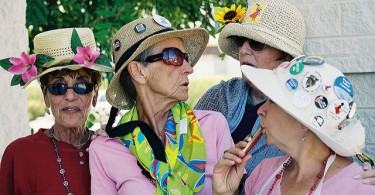“People need to understand that despite our cute little old lady appearance we are very serious women working with urgency as we reach the end of our lives.” The scene: A political rally in West...
Erica Manfred
How to prepare for a visit to the audiologist
You’d think with all the advances in modern medicine and technology these past 50 years, you’d be able to go get a hearing aid and presto — the world’s sounds would come into focus. That’s...


